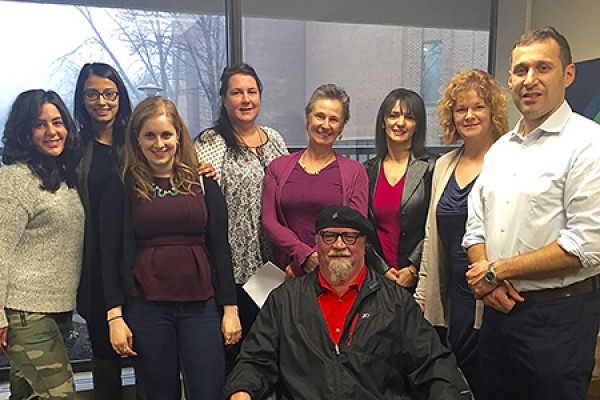 Windsor Law welcomed participants in “Bring a Self-Represented Litigant to School Day” on March 14.
Windsor Law welcomed participants in “Bring a Self-Represented Litigant to School Day” on March 14.
Chantal McCollum can relate to group of local self-represented litigants who visited Windsor Law last week. Her own experiences pursuing an employment dispute without legal counsel inspired her to study law.
The first-year law student spoke as part of a panel organized March 14 as part of “Bring a Self-Represented Litigant to School Day.” The event is organized by the National Self-Represented Litigants Project to help law students understand the challenges faced by self-represented litigants and the impact they have on the justice system.
The project builds on research work of Windsor Law professor Julie Macfarlane. Her study identified a need to enhance the capacity of courts to serve people representing themselves and called for continuing dialogue among stakeholders: litigants, lawyers, judges and court staff.
This was the second year visitors were invited to spend a day at Windsor’s law school: self-represented litigants Hedi Tremblay, Basma Preston, John Herceg and Kelly Christian attended classes and discussed what they learned representing themselves in court.
This year, law schools at Osgoode Hall and Ottawa University also participated, coordinated by second-year Windsor law student Gurleen Gill. Macfarlane hopes the event will spread further in future years.
For her part, McCollum describes appearing in small claims court without counsel as an “eye-opening” experience.
“It was daunting, because you’re unfamiliar with the legal system,” she says. “It was definitely very disconcerting.”
She recalls she was “lucky,” because the judge in the case was sympathetic to the fact that she and her partner were there without a lawyer, but the opposing counsel from a large firm tried to intimidate them. In the end, the two sides reached a settlement, but the process took a toll in terms of time, effort and emotional exhaustion.
“You’re dealing with really personal issues and so it’s hard to separate that, to look at things objectively,” McCollum says. “My classmates learned something by listening to our visitors. I think students got a sense that these people suffered.”
